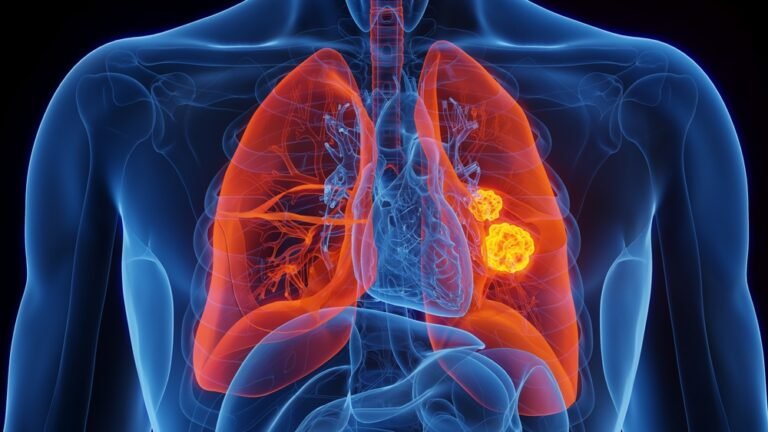Asthma is a chronic respiratory condition characterized by inflammation and narrowing of the airways, which can lead to difficulty breathing.
How To treat Asthma Flare up?
Management of asthma flare up have two aspects
- Symptom control
- Prevention of flare ups
For this purpose, there are two basic categories of asthma flare up medications.
- Reliever medications
- Maintenance medications
Asthma Flare up Reliever medications:
Reliever medicines are for immediate relief of symptoms. It includes steroid in inhaler form along with a bronchodilator that can act quickly to provide relief. There are 2 combinations
- Steroid plus formoterol (bronchodilator)
- Steroid plus salbutamol (bronchodilator)
Both these combinations of medicines work instantaneously and provide immediate relief. Apart from flare up episodes reliever medicines can also be used before exercise to prevent exercise induced asthma (shortness of breath, wheezing, coughing, and other symptoms during or after exercise is Exercise induced Asthma, EIA)
Asthma Flare up Maintenance medications:
These medicines are to reduce airways inflammation, control symptoms, prevent flare ups (exacerbations) and improve lung function. These medicines are to be used daily. Combinations are
- Steroid plus bronchodilator (formoterol, salmeterol)
- Only steroid inhaler
- Montelukast
MART:
It stands for Maintenance and Reliever Therapy. This is new concept which includes single inhaler containing steroid and bronchodilator that can be used as both reliever and maintenance. This combination is steroid plus formoterol. Formoterol can act shortly to quickly provide relief while at the same time it has effects of maintenance medicines. It is convenient and hassle free as just one inhaler serves both purposes instead of keeping 2 or 3 different inhalers. Other bronchodilators like salbutamol can only act to provide quick relief with no long-term effect, while salmeterol can only act to provide long term maintenance effect with no quick relief effect. 2 steroids combos with formoterol are:
- Budesonide and formoterol
- Beclomethasone and formoterol
What triggers asthma flare up?
Flare up usually occur when asthmatic person is exposed to triggers. These include:
- Viral respiratory infections
- Allergen exposure like grass, pollen, mold
- Food allergy
- Outdoor air pollution
- Seasonal changes
- Poor adherence with treatment
- Obesity
- Pregnancy
- Rhinitis/ Sinusitis
- Gastric reflux
Management of asthma flare up:
Whenever a known asthma patient experiences a flare up/exacerbation/worsening of symptoms he/she should:
- Increase dose of inhaled steroid containing inhaler
- Short acting bronchodilator (salbutamol)
- Short course of oral steroids (10 – 14 days)
- Nebulization
- Referral to hospital
Antibiotics have no role in asthma flare ups as mostly these flare ups are because of allergen exposure or viral infection or season change. Antibiotics can be prescribed only if there are signs of bacterial pneumonia on chest Xray after consulting your physician.
If you are taking steroid plus salmeterol inhaler or just steroid inhaler as maintenance ( daily use) medicine and you experience a flare up then you need to take reliever inhaler with combination of steroid and salbutamol and continue using same steroid plus salmeterol/ only steroid inhaler in increased dose .
If you are using steroid plus formoterol inhaler as daily use inhaler then same inhaler can be taken whenever you face a flare up. Only change would be increase in dose, like if you are taking one or two puffs daily increase it to 2 to 4 puffs daily, maximum up to 8-10 puffs.
This increase in maintenance inhaler dose should continue for 2 -3 weeks.
How to assess risk of flare up in asthma patients?
Asthma patients can categories themselves as well controlled, partly controlled and poorly controlled/uncontrolled on basis of self-assessment over past 4 weeks.
Self-assessment questions are:
- Daytime symptoms more than twice per week.
- Night time waking.
- Use of reliever medicine more than twice per week .
- Activity limitation.
Well controlled asthma none of these
Partly controlled 1-2 of these
Uncontrolled 3-4 of these
Chances of asthma flare ups are more in poorly controlled group of asthmatics. Flare ups can be avoided by maintaining good control of asthma.
Factors associated with risk of asthma related deaths during flare ups:
- History of an episode of asthma flare up requiring ventilator.
- Poor adherence with treatment especially inhaled steroids.
- History of psychiatric illness.
- Food allergy in asthma patients.
- Co morbid conditions like pneumonia, diabetes, heart diseases.
Asthma patients with above conditions need urgent referral to emergency in case of flare ups for prompt action and treatment.
Non pharmacological interventions to manage Asthma Flares:
There are some non-medical steps that can be taken to control asthma flare ups along with medications.
Cessation of smoking and vaping:
It is extremely important to quit smoking and vaping for the asthma patients because both smoking and vaping make asthma worse, increase chances of hospitalization and effect of medications is also reduced. Also smoking worsens lung function and increases risk of other lung diseases.
Exercise:
For asthmatics regular moderate physical activity has important health benefits including reduction in risk of heart diseases and improved quality of life. Also, we know exercise is an important cause of asthma symptoms in known asthma patients. This can be controlled by :
- warm up before exercise
- using low dose steroid plus formoterol/salbutamol inhaler before and during exercise.
Avoidance of occupational or domestic exposures
This is usually seen in adult-onset asthma (asthma that develops later in life). These patients might have allergens at home or at work. For its management it is necessary to identify any allergens at work or at home and avoid them.
Avoidance of medicines that make asthma worse:
There are few groups of medicines that can make asthma worse
- Aspirin
- Non-steroidal anti-inflammatory drugs (NSAIDs)
- Beta blocker (tablets and eye drops form)
These medicines should be stopped only if they make asthma worse or any reaction is reported on first time usage.
Healthy diet:
Patients with asthma should be encouraged to consume diet high in fruits and vegetables for its general health benefits. Studies have proved that fruits and vegetables help in good asthma control and reduces risk of flare ups.
Avoidance of indoor allergens:
Remediation of mold or dampness in homes reduces asthma symptoms and medication use in adults. Other indoor allergens are:
- House dust mite
- Furred pets
- Rodents
- Cockroaches
- Carpets
Allergen avoidance strategies benefit children more than adults.
Weight reduction:
Asthma can be more difficult to control in obese patients, also risk of frequent flare ups is more in obese patients. Response of medications is also reduced in obese. Weight reduction with diet and exercise both has shown better control of asthma symptoms.
Breathing exercises:
Breathing exercises improve symptoms and quality of life but have no role in control of flare ups.
Avoidance of indoor air pollution:
Indoor air pollutants are:
- Smoking (active and passive)
- Nitric oxide
- Carbon monoxide
- Carbon dioxide
- Sulphur dioxide
- Formaldehyde
Source of these pollutants are cooking and heating devices using gas and solid biomass fuels. People with asthma should be encouraged to use nonpolluting heating and cooking sources (heat pump, wood pellet burner, flued gas) and for sources of pollutants to be vented outdoors where possible.
Avoidance of outdoor allergens:
Asthmatic patients are advised to keep doors and windows closed and stay indoors when pollen and mold counts are high. Wear mask whenever there is need to go out.
Dealing with emotional stress:
Emotional stress worsens asthma. Hyperventilation associated with laughing, crying, anger, or fear can cause narrowing of airways. Panic attacks have a similar effect. Patients should be encouraged to deal with stress. Deep breathing in stressful situations helps in reducing asthma symptoms. Psychiatrist consultation is necessary in this case.
Avoidance of weather conditions:
During unfavorable environmental conditions (very cold, low humidity or high air pollution), outdoor activities should be avoided. It is strongly advised to stay indoors during such conditions.
Avoidance of food and food chemicals:
Food allergies are common in asthma patients especially children. People with asthma should be asked about symptoms associated with any specific food. Avoidance of such food is advised.
Food chemicals either naturally occurring or added during processing may also trigger asthma symptoms especially when asthma is poorly controlled. Sulfites (common food and drug preservatives found in such foods as processed potatoes, shrimps, dried fruits, beer, and wine) can cause asthma exacerbations. Other dietary substances include benzoate, yellow dye, tartrazine and monosodium glutamate.
Vaccinations
Vaccination prevents flare ups in asthma.
- Influenza vaccine
- Respiratory syncytial virus vaccine
- Pneumococcal vaccine
- Pertussis vaccine
- COVID – 19 vaccine









